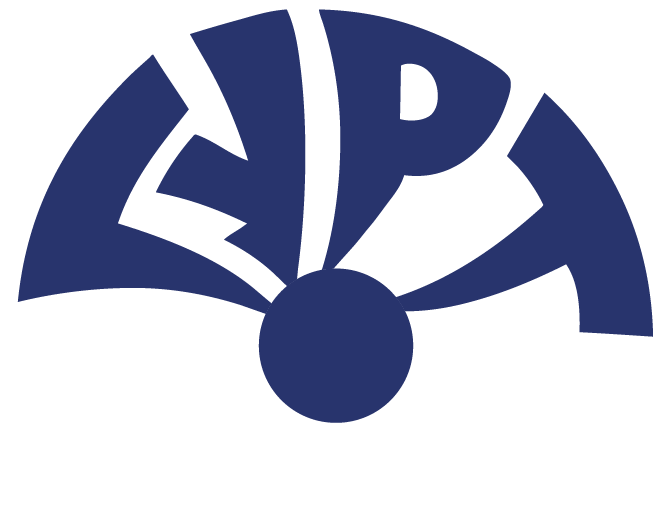


ICT Specialist в Управління ООН з Обслуговування Проектів
16.01.2019
The United Nations Office for Project Services (UNOPS) helps the United Nations (UN) and its partners provide peace and security, humanitarian, and development solutions. UNOPS services cover infrastructure, project management, procurement, financial management and human resources.
In response to the request of the Government of Ukraine, UNOPS opened an office in Ukraine in 2017, which provides a broad spectrum of services to the Government and the people of Ukraine. Currently, the office is classified as an Operations Centre (UAOC), with a portfolio of projects exceeding USD 100 million, in the areas of rule of law, environment, energy efficiency, crisis recovery, good governance, human resources management, procurement, and logistics.
The European Union funded ‘Support for Rule of Law Reforms in the Areas of Police, Public Prosecution and Good Governance Project’ (PRAVO – Law Enforcement) has the overall objective of supporting strengthening the policing, prosecution and civilian governance in Ukraine and to align them with the best European and International practices. On substance matters, the project relies on the EU Advisory Mission (EUAM) to Ukraine.
The Project interventions include support to upgrading the Information and Communication Technologies (ICT) of law enforcement agencies (LEAs). The overall objective of the current assignment is to enhance ICT capacities of Qualification and Disciplinary Commission of Prosecutors (QDCP), which would in turn enable the Commission to enhance accountability, efficiency, effectiveness, and transparency in the conduct of its functions.
The QDCP was established in May 2017 and has 11 personnel working full-time, including five prosecutors appointed by their peers at the All-Ukrainian Conference of Public Prosecutor’s Office Employees and six employees appointed by other bodies (Bar Congress of Ukraine, Congress of Representatives of Higher Education and Research Institutions in the Area of Law, Ombudsperson). The QDCP took over from the Public Prosecution Offices (PPO) the following key functions:
(a) Selection of candidate prosecutors for the local Public Prosecution Offices;
(b) Transferring of prosecutors to the PPOs of higher level;
(c) Dismissal of prosecutors, including the Prosecutor General;
(d) Disciplinary proceedings against prosecutors.
Given that the QDCP has significant powers with respect to who enters and leaves the prosecutorial profession as well as making decisions on disciplinary sanctions against prosecutors, there is a need to ensure efficiency, transparency, integrity and independence of the Commission’s functioning. It is for this reason that the Council of Europe Report 2017 states that “The QDCP needs urgent support in administrative and financial issues in order to establish it as a legal entity with its own independent budget, infrastructure and human resources”. Therefore, developing QDCP’s IT capabilities would allow it to increase efficiency and effectiveness, as well as improve transparency and accountability in its functioning.
Currently the Commission is co-located in the National Prosecution Academy of Ukraine. It has no separate budget line and thus does not have control over its own finances or material/human resources staying much dependent on the PGO in this regard. This is somewhat of a shortcoming as it is required by the Law to be independent of the PGO. Unless the Commission has basic resources to carry out is functions, it will be more and more difficult for the QDCP to assert its independence.
At the same time, the QDCP in current circumstances reportedly built sufficient cooperation with the PGO. The latter provides technical and administrative assistance to the QDCP in terms of IT through IT expert working for the QDCP Secretariat, which is still structural unit of the PGO. New premises lease agreement, signed by the Commission with the National Prosecution Academy of Ukraine in October 2018, indicates satisfactory level of partnership.
However, active steps are taken by the QDCP to ensure legal, intuitional, functional and operational independence. In particular, in April 2018 the Commission has approved a decision on establishment of fully-independent Secretariat, though there is still no funding for this. Moreover, recent efforts of the QDCP paid off and in the State Budget for 2019 the Commission got its’ own budget line under the PGO, even though allocated expenditures cover only salaries for the QDCP members (without Secretariat) and utilities. No expenditures for development have been envisaged so far.
Purpose
The overall objective of this assignment is to contribute to enhancement of ICT capacities of QDCP, which would in turn enable the Commission to enhance accountability, efficiency, effectiveness, and transparency in the conduct of its functions. Specifically, the selected Consultant will under the overall supervision of the Programme manager, and guidance of the ICT Advisor, validate the ICT needs of the QDCP and develop technical and functional specifications for automation of the Commission processes related to its main functions. Development of specifications would provide basis for procurement and implementation of the identified solutions.
Scope
The scope of this assignment includes identification and analysis of the QDCP ICT needs, provision of the technical and functional specifications, and conduct of the market research for the IT proposed solutions. In addition, the selected Consultant will develop a high-level plan for implementation of the designed IT solutions. The technical and functional specifications should be prepared for:
- Automation of processes related to the core functions of the QDCP including but not limited to:
- The selection of candidate prosecutors to local PPOs and transferring of prosecutors to PPOs of higher level (including but not limited to development of the technical and functional requirements for the Commission’s own electronic testing and practical assignments evaluation IT solutions; and development and implementation of the electronic profile management solution for the candidates)
- Dismissal of prosecutors, including the Prosecutor General
- Disciplinary proceedings against prosecutors (including but not limited to implementation of an electronic disciplinary proceeding system; and improvement of the current automated complaints distribution)
- Introduction of Electronic Document Flow System that would be interoperable with the systems of relevant stakeholders (PPO authorities, High Council of Justice, Supreme Court)
- IT infrastructure - building network independent of the PGO and the National Prosecution Academy of Ukraine complying with appropriate security requirements and standards.
Outputs
The outputs shall be the following:
- Technical and functional specifications for concrete IT solution(s) identified in the Scope Section of this Terms of Reference (ToR) by including implementation and support/maintenance plans. The study should consider only on-site server infrastructure (not cloud-based) for deployment, hosting and maintenance of the proposed solutions
- Market research study for the chosen IT solutions
- Provision of advisory support at the later stage of the project implementation (e.g. tender procedure for software development) based on the received technical and functional specifications document.
Methodology Principles and Framework
The Consultant will be responsible to carry out the Assignment. He or she shall ensure that all the proposals listed in the Scope Section are developed in collaboration and are duly agreed with the beneficiary institution, and that the implementation of the proposed IT solutions is realistic and feasible taking into account the level of funding, human resources, ICT maintenance, as well as the material infrastructure available to the beneficiary institution.
The Assignment will at least include the following phases: preparatory activities, assessment and analysis, development of technical and functional specifications document for the proposed IT solutions, drafting, finalisation, and presentation of the Final Report.
Within preparatory activities, the Consultant will:
- Meet UNOPS and the EUAM in order to: reconfirm the Assignment objectives, scope, and methodology, and to obtain background information relevant for the task. Close communication with the UNOPS and the EUAM must be maintained throughout the conduct of the Assignment.
- Organise meetings and other functions that will be conducted within the Assignment
- Conduct desk research of the relevant documentation, including of available researches, studies, assessment and relevant national policies
- Prepare the Inception Report that will detail the assignment methodology and the work plan. Only upon the approval of the Inception Report, the assessment work should commence. The Report should be maximum five pages long, in English language.
The identification and analysis of needs should at least include:
- In-depth interviews and or group discussions with the representatives of the beneficiary institutions. Interviews and or group discussions with representatives of the QDCP and other relevant institutions, as per need and or request from the UNOPS
- Analysis of the interview findings and conduct of additional research as necessary. The consultant will prepare the draft Report[1] that will include interim findings, lessons learned, and recommendations
- The draft Report will be discussed with the beneficiary institution, UNOPS, and the EUAM. The consultant will consider feedback provided to the draft and edit the Report accordingly.
Preparation of the technical and functional requirements for IT solutions, including conduct of market research, costing plan, and high-level implementation plan.
The Final Report, which should be produced in English and have maximum 30 pages, excluding Annexes, should be presented at the event that will at least include the beneficiary institutions, the Delegation of the European Union, the EUAM, and UNOPS.
The consultant may propose possible modification of the methodology that would facilitate more efficient and more effective conduct of the task.
While UNOPS and the EUAM will assist the conduct of the Assignment with provision of part of relevant documentation, identification of stakeholders and beneficiaries, and provision of office space for the conduct of the presentation of the Final Report, the conduct of the Assignment and delivery of quality products remain the sole responsibility of the consultant.
Technical Activities
While following the above outlined methodology, the selected consultant will perform the key technical activities:
5.1 Review work related to QDCP ICT needs and capability done to date
5.2 Map the QDCP operational processes
5.3 Review current systems in place
5.4 Develop detailed technical specifications for an automated solution(s) covering the areas in the Section 3 of this ToR
5.5 Conducting a market research for the proposed IT solutions
5.6 Maintenance plan with resourcing and timeframe.
Special conditions
By signing the contract, the consultant agrees to hold in trust and confidence any information or documents (“confidential information”), disclosed to the consultant or discovered by the consultant or prepared by the consultant in the course of or as a result of the implementation of the contract, and agrees that it shall be used only for the purposes of the contract implementation and shall not be disclosed to any third party. The consultant also agrees not to retain copies of any written information or prototypes in its own archive and for its own use.The format of the draft Report should be suggested in the Inception Report.
The services are expected to be delivered from the January 2019 – until March 2019.
Education/Experience/Language requirementsEducation:
University degree - master’s or bachelor’s in computer science, engineering or mathematics or other relevant fields.
Experience:
Minimum seven (7) years with a master’s degree OR nine (9) years with a bachelor’s degree of relevant and proven professional experience after having completed his/her studies is required
At least three (3) years working with software and hardware solutions used in large enterprises is required
Experience in the design and implementation of complex software with multi-layered architectures
Knowledge of data modelling or data administration;
Experience in building and designing solutions that run in virtualized environments
At least three (3) years of experience relevant to the assignment at issue in/with the public and/or security sector proven by the track record
Solid knowledge of web services
Languages:
Fluency in written and spoken English and Ukrainian is required.
For more details about the vacancy and application, please follow this link:
https://jobs.unops.org/pages/viewvacancy/VADetails.aspx?id=17171#2
Контакти
- https://jobs.unops.org/Pages/ViewVacancy/VADetails.aspx?id=16778#5








Коментарі